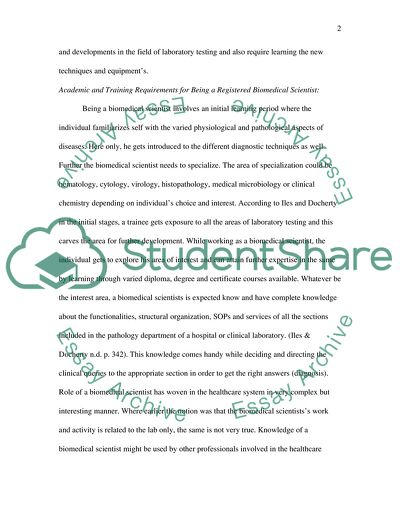Cite this document
(The Role of a Biomedical Scientist Term Paper Example | Topics and Well Written Essays - 2250 words, n.d.)
The Role of a Biomedical Scientist Term Paper Example | Topics and Well Written Essays - 2250 words. Retrieved from https://studentshare.org/science/1762704-review-the-professional-and-scientific-role-of-the-registered-biomedical-scientist-within-the-healthcare-sector-assessment
The Role of a Biomedical Scientist Term Paper Example | Topics and Well Written Essays - 2250 words. Retrieved from https://studentshare.org/science/1762704-review-the-professional-and-scientific-role-of-the-registered-biomedical-scientist-within-the-healthcare-sector-assessment
(The Role of a Biomedical Scientist Term Paper Example | Topics and Well Written Essays - 2250 Words)
The Role of a Biomedical Scientist Term Paper Example | Topics and Well Written Essays - 2250 Words. https://studentshare.org/science/1762704-review-the-professional-and-scientific-role-of-the-registered-biomedical-scientist-within-the-healthcare-sector-assessment.
The Role of a Biomedical Scientist Term Paper Example | Topics and Well Written Essays - 2250 Words. https://studentshare.org/science/1762704-review-the-professional-and-scientific-role-of-the-registered-biomedical-scientist-within-the-healthcare-sector-assessment.
“The Role of a Biomedical Scientist Term Paper Example | Topics and Well Written Essays - 2250 Words”. https://studentshare.org/science/1762704-review-the-professional-and-scientific-role-of-the-registered-biomedical-scientist-within-the-healthcare-sector-assessment.


